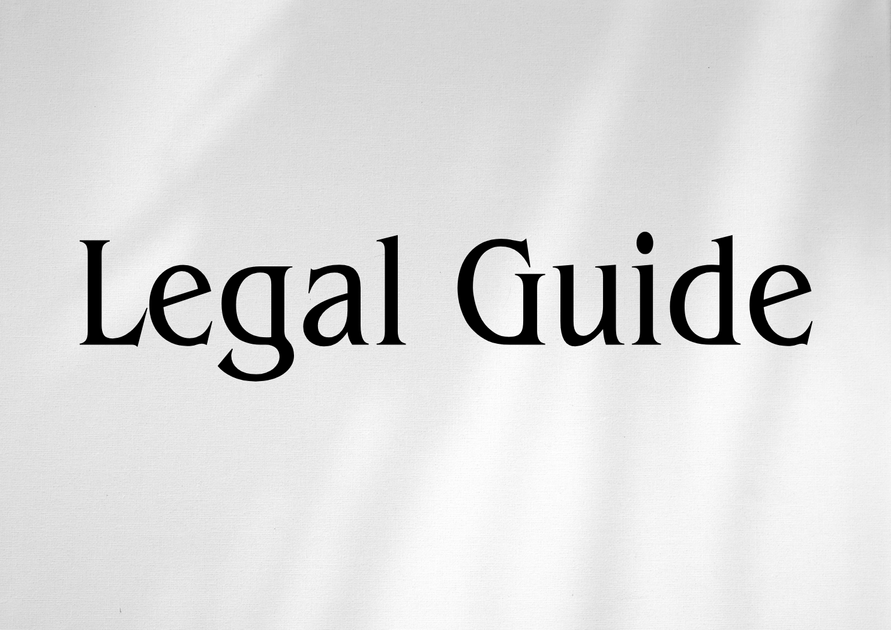Introduction
The UAE continues to reassert its status as a global business hub through sweeping legal reforms tailored for modern enterprise. Navigating the complexities of business formation, particularly in selecting the right legal structure, has never been more critical. Updated regulations, including notable amendments under Federal Decree-Law No. (32) of 2021 on Commercial Companies and subsequent implementing Cabinet Resolutions, have redefined the regulatory landscape for both local and foreign investors. Choosing the optimal legal structure not only determines liability, tax exposure, and regulatory obligations, but also frames how a business scales, adapts, and thrives in the competitive UAE environment. Whether you are a multinational expanding regionally, a start-up entrepreneur, or an executive guiding your organization through restructuring or compliance upgrades, understanding these pivotal choices is essential for strategic growth and legal security in 2025 and beyond.
This in-depth consultancy article dissects the key regulatory provisions, contrasts recent legal changes, and delivers actionable insights for selecting the most suitable legal structure for business success and legal compliance in the UAE.
Table of Contents
- Overview of UAE Legal Structures in 2025
- Key Laws, Updates and Regulatory Authorities
- Main Types of Legal Structures: Features, Benefits, and Limitations
- Comparative Analysis: Old vs. New Corporate Laws
- Practical Considerations When Choosing a Structure
- Case Studies: Structure Selection in Practice
- Risks of Non-Compliance with UAE Law
- Best Practice Compliance Strategies
- Conclusion: Future Perspectives and Strategic Recommendations
Overview of UAE Legal Structures in 2025
Legal Framework and Economic Vision
The UAE’s rapid growth towards economic diversification is supported by a robust legislative infrastructure. The recent amendments introduced through Federal Decree-Law No. (32) of 2021 on Commercial Companies, as amended, and further regulations issued by the Ministry of Economy and Cabinet resolutions, have restructured how businesses may form and operate.
Business structures in the UAE are primarily shaped by the following:
- Federal Decree-Law No. (32) of 2021 (as amended)
- Cabinet Resolution No. (58) of 2020 on the Regulation of Beneficial Owner Procedures
- Relevant Free Zone Regulations (such as DIFC and ADGM)
- Emirate-specific regulations, especially for sole establishments and civil companies
Understanding these legal frameworks is crucial, as each structure impacts ownership, liability, regulatory obligations, and cross-border operations.
Key Laws, Updates and Regulatory Authorities
Governing Bodies and Legal Sources
- Ministry of Economy: Licensing and regulatory oversight for most business structures
- Department of Economic Development (DED): Regional licensing and commercial compliance
- UAE Ministry of Justice: Legal frameworks and court jurisdiction
- Federal Legal Gazette: Source for publication of amendments and regulations
Recent Legal Updates Impacting Business Structures
The evolution of UAE company law—especially recent decrees—has introduced several critical updates:
- 100% Foreign Ownership: Under the amended Commercial Companies Law, many commercial activities now permit up to 100% foreign ownership outside free zones, subject to Emirate-level approval.
- Beneficial Ownership & Transparency: Stricter disclosure requirements for beneficial ownership and governance transparency, mandating periodic updates with the Ministry and regulators.
- Removal of Local Sponsor Requirement: The traditional need for a local service agent or sponsor for LLCs is now relaxed for most business activities.
- Introduction of ‘Sole Proprietorship LLC’: Enabling a single shareholder to incorporate a limited liability company.
Main Types of Legal Structures: Features, Benefits, and Limitations
Below, we provide a detailed consultancy breakdown of the main legal structures recognized in the UAE, with practical insights for each.
1. Limited Liability Company (LLC)
- Governing Law: Federal Decree-Law No. (32) of 2021
- Ownership: 1–50 shareholders, now permitting 100% foreign ownership for most activities
- Liability: Limited to the value of shares
- Management: Typically managed by one or more managers (can also have a board)
- Key Updates: No mandatory UAE national partner for most commercial activities
When is an LLC Advisable?
LLCs balance regulatory compliance with flexibility, making them ideal for SMEs, joint ventures, and businesses seeking to limit personal liability while maintaining local or international trading rights. They are not permitted for certain professional or banking activities.
2. Sole Proprietorship (Establishment)
- Governing Law: UAE Commercial Companies Law; DED guidelines
- Ownership: 100% owned by an individual, typically a UAE/GCC national for commercial activities; foreign nationals can establish in professional domains subject to a local service agent
- Liability: Unlimited personal liability
- Key Updates: Restrictions on activities and risk exposure
When is a Sole Proprietorship Advisable?
This structure is suited for professionals (consultants, artisans) with simple operations and low liability exposure. However, unlimited liability is a significant risk consideration.
3. Civil Company
- Governing Law: Civil Transactions Law and local DED rules
- Ownership: Two or more partners engaged in professional/vocational activities
- Liability: Generally unlimited, unless structured with professional indemnity
- Key Updates: Foreign professionals can own 100%, but must register with a local service agent
4. Branch Office (Local and Foreign)
- Governing Law: Federal Decree-Law No. (32) of 2021; Ministerial Guidelines
- Ownership: Extension of parent company (no separate legal personality)
- Liability: Parent company remains fully liable
- Key Updates: Foreign branches must appoint a local agent, except for certain activities
5. Free Zone Company (FZE/FZ LLC)
- Governing Law: Free zone authority regulations (e.g., DIFC Law No. 2 of 2009 for DIFC companies)
- Ownership: Typically 100% foreign ownership permitted
- Liability: Limited to capital invested
- Key Updates: No direct trade permitted on the UAE mainland without a mainland license
6. Public Joint Stock Company (PJSC)
- Governing Law: Federal Decree-Law No. (32) of 2021 and SCA regulations
- Ownership: Minimum 5 founding members, shares can be publicly traded
- Liability: Limited to value of shares
- Key Updates: Enhanced corporate governance and disclosure obligations in line with global standards
7. Holding Company
- Governing Law: Federal Decree-Law No. (32) of 2021, relevant free zone rules
- Purpose: To control subsidiaries, manage investments, intellectual property, or assets
- Key Updates: More flexible holding models for family businesses and investment portfolios
Summary Table of Structure Attributes
| Structure | Ownership | Liability | Main Activity | Foreign Ownership |
|---|---|---|---|---|
| LLC | 1–50 Persons | Limited | Commercial/Industrial | Up to 100% |
| Sole Proprietorship | 1 Person | Unlimited | Professional/Commercial | Restricted |
| Civil Company | 2+ Professionals | Unlimited | Professional Only | Up to 100% |
| Free Zone Company | 1+ Persons | Limited | Free Zone Activities | 100% |
| PJSC | 5+ Persons | Limited | Large Commercial | Up to 100% (sectoral caps may apply) |
| Branch Office | Parent Entity | Unlimited/Parent | Extension of Parent Activities | 100% (with agent) |
Comparative Analysis: Old vs. New Corporate Laws
Continual reforms to UAE company law mean that legal professionals and executives must be aware of significant contrasts between the pre-2021 regime and the current landscape.
| Aspect | Before Federal Decree-Law No. (32) of 2021 | Current Framework (Post-2021) |
|---|---|---|
| Foreign Ownership | Max 49% (51% Emirati required in LLC) | Up to 100% for many activities |
| Sole Shareholder LLC | Not allowed | Permitted (Sole Proprietorship LLC) |
| Minimum Share Capital | Variable, often higher | Relaxed/No fixed minimum for most activities |
| Local Service Agent Requirement | Mandatory for most foreign-owned businesses | Removed for most (except certain activities/branches) |
| Disclosure & Transparency | Limited requirements | Stringent beneficial ownership and annual reporting mandated |
Visual Suggestion
Recommendation: Insert a flow diagram visually mapping structure selection based on key business criteria (ownership, activity, risk appetite).
Practical Considerations When Choosing a Structure
Key Deciding Factors for Business Leaders
- Nature of Business Activity: Regulatory approvals may differ for trading, professional, or industrial operations.
- Shareholding & Control: Importance of investor nationality, number of shareholders, and internal controls.
- Liability Exposure: How risk is compartmentalized by structure (e.g., LLC vs. sole proprietorship).
- Taxation & Accounting: Impact of the Corporate Tax (Federal Decree-Law No. 47 of 2022); certain free zones offer incentives, but anti-abuse rules apply.
- Expansion Needs: Ability to scale, issue shares, or list publicly (especially with holding or PJSC structures).
- Market Access: Whether the entity can operate geographically (mainland vs. free zone vs. branch operations).
- Compliance & Reporting: Regulations on financial statements, UBOs, and director duties differ by structure.
Customizing the Legal Structure: Examples
For instance, foreign tech start-ups may favor a free zone setup for 100% ownership, IP protection, and sector-specific incentives. Conversely, a UAE-based manufacturer aiming for large government contracts may require a mainland LLC structure for full market access.
Case Studies: Structure Selection in Practice
Case Study 1: Fintech Start-Up Entering the UAE Market (2025)
Scenario: A UK fintech SME seeks to provide digital payment solutions.
- Legal Advice: Establish in Abu Dhabi Global Market (ADGM) as a Free Zone Company to leverage a common law environment, 100% foreign ownership, and favorable IP rules. However, the entity must obtain regulatory approval from the Financial Services Regulatory Authority (FSRA).
- Outcomes: Fast-track licensing, robust investor protection, but limited direct sales on the mainland unless a mainland subsidiary is created.
Case Study 2: Regional Retail Group Moving to 100% Foreign Ownership
Scenario: A longstanding retail company previously structured as a mainland LLC (51% Emirati, 49% foreign) wishes to capitalize on new foreign investment rules.
- Legal Advice: Restructure to transfer Emirati shares to the foreign principal, subject to DED and Emirate regulatory approval. Assess contractual implications (e.g., impact on existing supplier or franchise agreements).
- Outcomes: Simplified governance, unified shareholder control, but with new transparency and reporting duties under UBO regulations.
Case Study 3: Professional Consultancy Practice Expansion
Scenario: A UK-headquartered law firm seeks to open an office in Dubai while maintaining international identity.
- Legal Advice: Establish a Branch Office of a foreign company on the mainland with a local service agent (LSA). For full-practice capability, consider a partnership arrangement within the DIFC, subject to Dubai Legal Affairs Department approval.
- Outcomes: Access to both onshore and offshore clients, with clear demarcation of legal liabilities.
Risks of Non-Compliance with UAE Law
Legal and Regulatory Ramifications
Failure to adhere to UAE commercial company and regulatory laws can result in significant penalties:
- Financial Penalties: Substantial fines for failure to comply with shareholding, beneficial ownership, or reporting obligations. For instance, under Cabinet Resolution No. (58) of 2020, UBO non-disclosure fines can reach AED 100,000 or more.
- License Suspension or Revocation: DED and free zone authorities may suspend or revoke non-compliant business licenses, interrupting operations.
- Legal Exposure: Breach of statutory obligations may expose managers and shareholders to personal liability or criminal sanction.
- Operational Impact: Ineligible for government projects, restricted access to banking, and reputational damage.
Compliance Risks Table
| Non-compliance Area | Potential Penalty | Practical Consequence |
|---|---|---|
| UBO Disclosure (Cabinet Resolution No. 58/2020) | Up to AED 100,000 | License suspension, banking restrictions |
| Improper Structure (Commercial Companies Law) | Fines, company dissolution | Loss of business continuity |
| Tax Registration (Federal Decree-Law No. 47/2022) | Hefty tax penalties | Asset seizure |
| Employment Law Breach (Labour Law) | Variable, incl. deportation | Business ban, reputational damage |
Visual Suggestion
Recommendation: Add a compliance checklist infographic—listing annual/quarterly requirements for key structures.
Best Practice Compliance Strategies
Staying Ahead of Regulatory Obligations
- Regulatory Monitoring: Subscribe to Federal Legal Gazette updates and DED newsletters for legal changes.
- Annual Legal Audits: Engage licensed UAE legal consultants for annual corporate health checks, especially around UBO and annual meeting compliance.
- Outsourced Compliance Officers: Appoint or contract compliance specialists to monitor regulatory updates and implement policies.
- Tailored Corporate Governance Policies: Draft governance frameworks that reflect the latest statutory expectations (including Director and Manager obligations).
- Technology Solutions: Implement secure platforms for document retention and regulatory filings.
- Periodic Internal Training: Hold workshops on new UAE law updates for staff and management.
Checklist for Selecting the Right Legal Structure
- Define nature of commercial activities and required licensing authorities
- Understand ownership, nationality, and capital contribution requirements post-2021
- Assess the liability implications for shareholders and managers
- Evaluate tax and reporting obligations (including relevance of UAE corporate income tax)
- Consider operational flexibility for scaling or diversification
- Consult with UAE-licensed legal experts for customized solutions
Conclusion: Future Perspectives and Strategic Recommendations
UAE company law reforms, especially under Federal Decree-Law No. (32) of 2021 and its subsequent amendments, have ushered in an era of opportunity and regulatory complexity. The right legal structure is more than a compliance tick-box; it shapes strategic direction, risk management, and market openness for every business in the UAE. Organizations must remain nimble and proactive, investing in legal counsel, robust governance, and continuous regulatory education to maintain competitive advantage.
Looking ahead, the trajectory of UAE reforms will likely see even greater integration of global standards for transparency, corporate governance, and foreign direct investment facilitation. Businesses should not only respond to current compliance imperatives but also anticipate evolving benchmarks in digitalization, sustainability, and cross-border regulation.
Best Practice: Engage experienced UAE legal consultants early in the incorporation journey and for periodic reviews. By selecting the optimal corporate structure and maintaining full legal alignment, organizations can maximize regulatory benefits and position themselves at the forefront of the UAE’s ambitious economic agenda.




